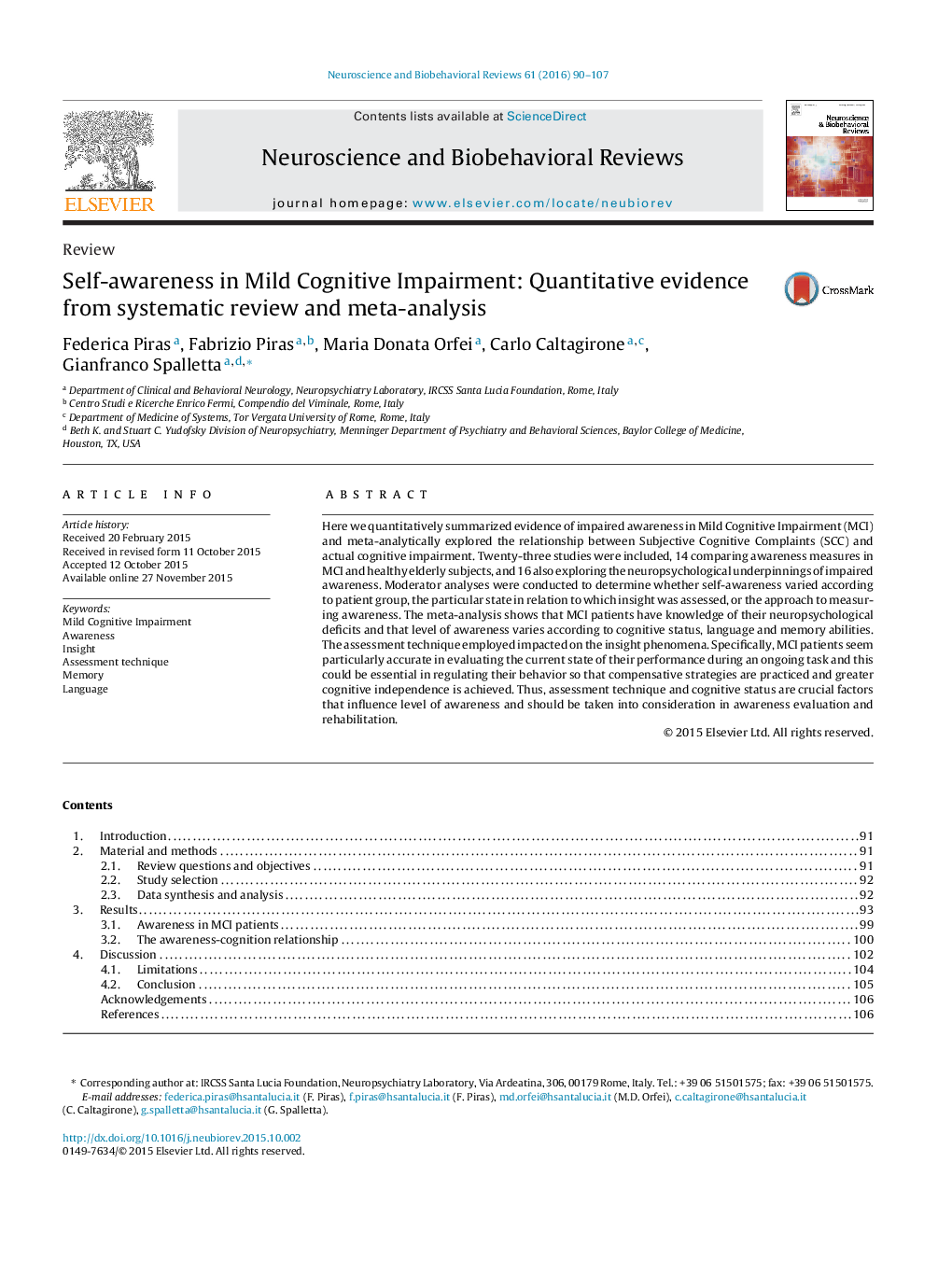| Article ID | Journal | Published Year | Pages | File Type |
|---|---|---|---|---|
| 937416 | Neuroscience & Biobehavioral Reviews | 2016 | 18 Pages |
Abstract
Here we quantitatively summarized evidence of impaired awareness in Mild Cognitive Impairment (MCI) and meta-analytically explored the relationship between Subjective Cognitive Complaints (SCC) and actual cognitive impairment. Twenty-three studies were included, 14 comparing awareness measures in MCI and healthy elderly subjects, and 16 also exploring the neuropsychological underpinnings of impaired awareness. Moderator analyses were conducted to determine whether self-awareness varied according to patient group, the particular state in relation to which insight was assessed, or the approach to measuring awareness. The meta-analysis shows that MCI patients have knowledge of their neuropsychological deficits and that level of awareness varies according to cognitive status, language and memory abilities. The assessment technique employed impacted on the insight phenomena. Specifically, MCI patients seem particularly accurate in evaluating the current state of their performance during an ongoing task and this could be essential in regulating their behavior so that compensative strategies are practiced and greater cognitive independence is achieved. Thus, assessment technique and cognitive status are crucial factors that influence level of awareness and should be taken into consideration in awareness evaluation and rehabilitation.
Related Topics
Life Sciences
Neuroscience
Behavioral Neuroscience
Authors
Federica Piras, Fabrizio Piras, Maria Donata Orfei, Carlo Caltagirone, Gianfranco Spalletta,
